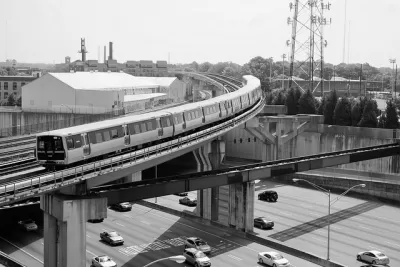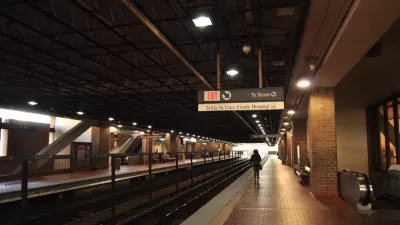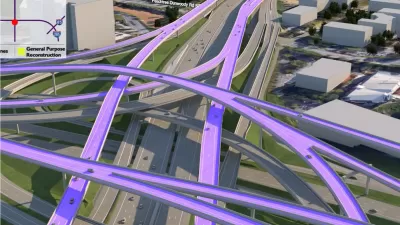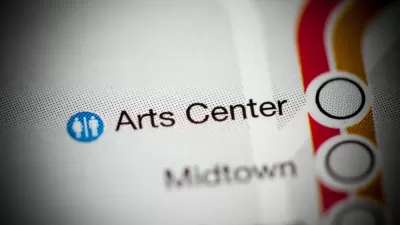Georgia's House Bill 511 is progressing through the State Legislature with the potential to change funding and governance of transit in the city while taxing rides with taxi, limousine, and ride-hailing companies.

"A bill that could pave the way for transit expansion across Georgia cleared its first hurdle Tuesday, with an amendment that could benefit metro Atlanta," reports David Wickert.
"House Bill 511 would raise tens of millions of dollars for transit by imposing a 50-cent fee for taxi, limousine and ride-hailing service rides, and a 25-cent fee on shared rides," adds Wickert. "The fee would replace the state’s existing sales tax on rides for hire. It would generate an estimated $30 million to $60 million annually for transit."
That funding would pay for "pilot programs that would provide transit vouchers or credits to unemployed residents in parts of rural Georgia and tax credits for companies who subsidize their employees’ transportation to work."
A controversial component of the bill would consolidate state transit functions currently split into six agencies into a new Georgia Department of Mobility and Innovation. Gone would be the Georgia Department of Transportation, the Department of Human Services, and the Department of Community Health.
FULL STORY: Transit bill could benefit metro Atlanta

Planetizen Federal Action Tracker
A weekly monitor of how Trump’s orders and actions are impacting planners and planning in America.

Maui's Vacation Rental Debate Turns Ugly
Verbal attacks, misinformation campaigns and fistfights plague a high-stakes debate to convert thousands of vacation rentals into long-term housing.

Restaurant Patios Were a Pandemic Win — Why Were They so Hard to Keep?
Social distancing requirements and changes in travel patterns prompted cities to pilot new uses for street and sidewalk space. Then it got complicated.

In California Battle of Housing vs. Environment, Housing Just Won
A new state law significantly limits the power of CEQA, an environmental review law that served as a powerful tool for blocking new development.

Boulder Eliminates Parking Minimums Citywide
Officials estimate the cost of building a single underground parking space at up to $100,000.

Orange County, Florida Adopts Largest US “Sprawl Repair” Code
The ‘Orange Code’ seeks to rectify decades of sprawl-inducing, car-oriented development.
Urban Design for Planners 1: Software Tools
This six-course series explores essential urban design concepts using open source software and equips planners with the tools they need to participate fully in the urban design process.
Planning for Universal Design
Learn the tools for implementing Universal Design in planning regulations.
Heyer Gruel & Associates PA
JM Goldson LLC
Custer County Colorado
City of Camden Redevelopment Agency
City of Astoria
Transportation Research & Education Center (TREC) at Portland State University
Jefferson Parish Government
Camden Redevelopment Agency
City of Claremont





























